Fight like a girl: Women in sports negotiating athletic ability and femininity
Tackling expectations remains an unconquered territory; women are expected to behave differently on and off the field.
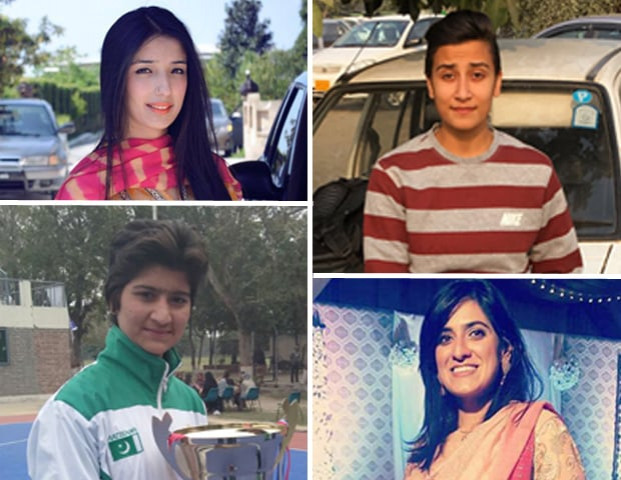
Tackling expectations remains an unconquered territory; women are expected to behave differently on and off the field.
In 2016, the women’s national basketball team was able to participate in the 12th South Asian Games after a hiatus of 20 years. Meanwhile, Pakistani women also made their debut in international rugby earlier this year.
But tackling expectations around heterosexual femininity remains an unconquered territory. An increasing number of women are now venturing into a field that is still understood to require qualities traditionally associated with men - speed, strength, aggression and a competitive streak. So while women must display all those traits on the field, many are expected to smoothly fit into a mould created around ‘appropriately feminine’ behaviour when they step off the field.
Sehrish Maqsood, 22, represented Pakistan in India at the Kabaddi World Cup held in 2014. Her performance was ranked number two in the entire tournament and she won Woman of the Match twice; once against Denmark and once against the UK.
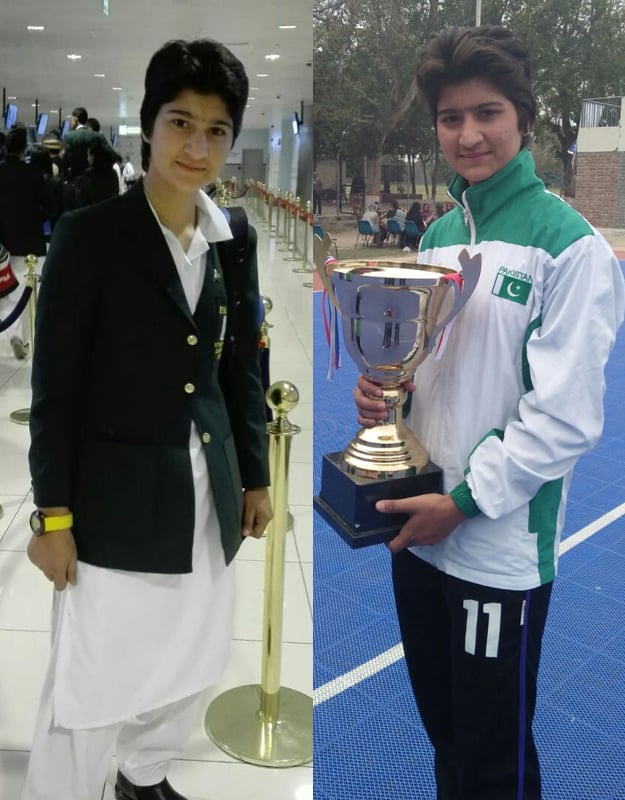 Everyone said kabaddi is a man’s sport; just play something else, not kabaddi, it doesn't look ‘nice’. Even after I came back home with so many accolades, some of my relatives made a big fuss because they thought it wasn't appropriate for a girl in the family to play kabaddi: Sehrish Maqsood
Everyone said kabaddi is a man’s sport; just play something else, not kabaddi, it doesn't look ‘nice’. Even after I came back home with so many accolades, some of my relatives made a big fuss because they thought it wasn't appropriate for a girl in the family to play kabaddi: Sehrish MaqsoodBut kabaddi is not her only love. She has represented Pakistan in handball and has played basketball at the national level as well.
Maqsood, who was born and raised in Faisalabad, is currently completing her undergraduate degree in Sports Sciences from Lahore College for Women (LCW) on a sports scholarship. Her penchant for physical activities started early on in the sixth grade. However, she feels it was not until 12th grade that she actually understood what sport is about, particularly basketball.
When she entered university, she was winning silver and bronze medals within no time and playing across the country. This is when she got noticed by the federation and coaches who were looking to start a camp to participate in the Kabaddi World Cup. Initially, she was not too interested in kabaddi but decided to simply give it a try. She then got selected for the final squad and this was to be her first international tour.
“I didn't even have a passport or an NIC, but my teammates and coaches pushed me to get everything made. I literally rushed home and got everything made in a few days, it was almost like a blur how quickly things happened,” she recalls.
Being on the field in a competitive environment demands more than just skills; presence of mind, focus and vigour are essential too. Maqsood says that the jump from playing domestically to facing international teams brings an increased amount of pressure.
“In my first tour abroad, I literally shivered before the match and my lips dried up. But gradually the nervousness decreased,” she explains.
All the effort paid off and she made a name for herself in the sport of kabaddi, holding her flag. But the vitriol had to come. Her extended kin were the first ones to criticise.
“Everyone said kabaddi is a man’s sport; just play something else, not kabaddi, it doesn't look ‘nice’. Even after I came back home with so many accolades, some of my relatives made a big fuss; they didn't even come to congratulate me, all because they thought it wasn't appropriate for a girl in the family to play kabaddi,” she says.
But her immediate family has been her rock. That includes her mother who is a homemaker and two of her brothers, all three of whom encourage her to continue playing and do not bog her down with pressure to ‘settle down’.
Maqsood feels that away from the urban centres of Islamabad, Karachi and Lahore, the criticism that sportswomen have to face is vicious. The kind of expectations people have of women are very clear and adherence to them goes unquestioned. But she feels ever since she made a name for herself, the pressure has started to recede.
“I don’t feel like dressing up or putting on makeup. Sometimes I do, like on family functions etc. but it’s not something that I enjoy,” she says.
Sports is perhaps a prime example of an arena where renowned philosopher and gender theorist, Judith Butler’s concept of ‘gender performativity’ can be applied. Butler argues that gender is actually an impersonation, a conscious act that is undertaken by men and women based on what they have already seen; the conventions of their own respective sexes.
So, for sportswomen, this performance can become a part of how they negotiate identity. The field demands characteristics that are understood as ‘manly’ but off the field, the dominant culture demands conventional heterosexual femininity.
Mehru Khan, however, feels this negotiation is not as explicit.
“I personally feel that most girls in sports are not too ‘girly, girly’. Once you are an athlete, you don't really have a gender. I am not a 'girly girl' myself. I have the same persona both off and on the field. I have to perform in a way so that no attention gets pulled towards my gender. I play as an athlete, not as a girl or a guy,” she explains.
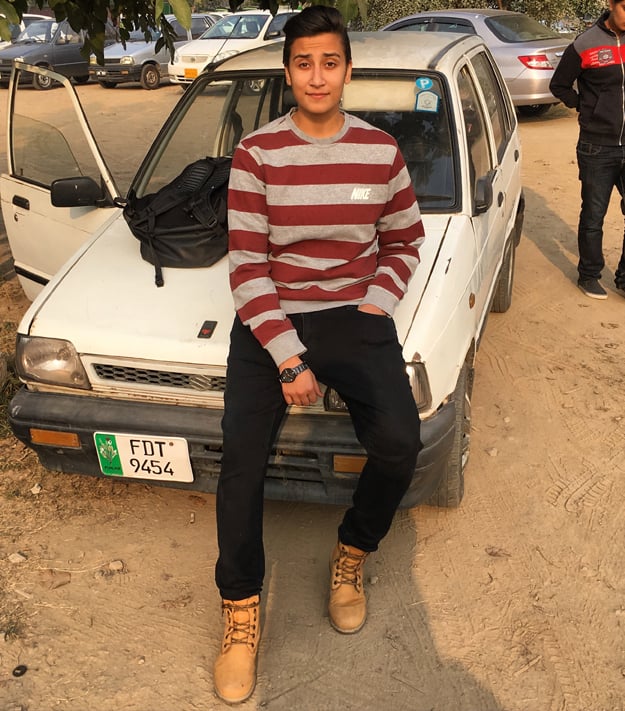 If you wear girly clothes and ride a bike, that brings a set of issues. But if you dress in a more boyish manner and drive a bike, people still have a problem: Mehru Khan
If you wear girly clothes and ride a bike, that brings a set of issues. But if you dress in a more boyish manner and drive a bike, people still have a problem: Mehru KhanKhan, 22, who is a member of the first Pakistan women’s rugby team to compete internationally is currently enrolled in Kinnaird College and is completing an undergraduate degree in political science.
She began playing rugby in 2010 in Canada. On her return to Pakistan, she was on the lookout for opportunities at home. She wanted to start a girl’s rugby club but could not get hold of enough girls. So she directed her energy towards basketball, another sport that is very close to her heart. But then the unexpected happened; earlier this year, the camp for the women’s rugby team started a block away from her house in Lahore.
The rugby team played six matches in total, three in one day at the Asian Women’s Rugby Sevens held in Laos in February. The girls played their first match against Korea; the strongest team of the region.
“We were obviously scared, not to lose but about the fact that our first performance was in front of such a big team. It does affect your team’s morale. The girls were initially a bit reluctant to tackle, etc.” she recalls.
They were better against Laos and they had their first win against Nepal. After that, they faced arch-rivals India, a team that has been competing internationally for the last 15 years.
“We had literally only practised for two months but we still gave them a tough time. They fumbled and their passes were weaker than ours. They only scored one try and that too because one of our players got a yellow card and she went off the field for two minutes and for those two minutes, it was six against seven. They took advantage of that,” she recounts.
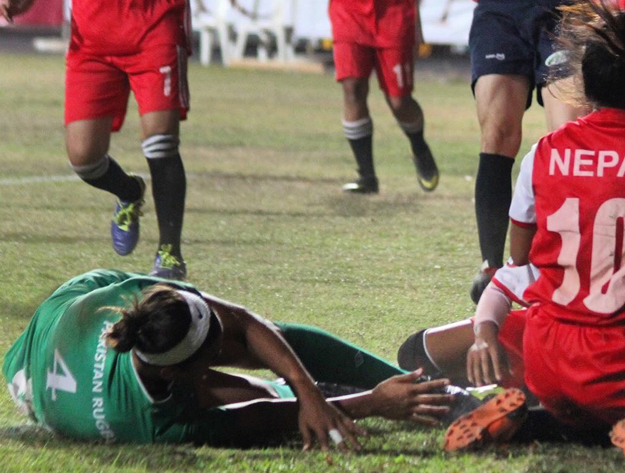 Mehru Khan believes that the world of sports is host to a variety of sexual orientations but sweeping generalisations are the cause of considerable angst for players.
Mehru Khan believes that the world of sports is host to a variety of sexual orientations but sweeping generalisations are the cause of considerable angst for players.Khan is hopeful that the team will continue to practice. But what she feels more strongly about is the attitude that girls in sports have to deal with.
“The biggest thing that is holding us back is how our society thinks. ‘Log kiya kahain gay’. There’s nothing wrong with it if your daughter has to play in shorts. Once this mentality changes, only then will girls and their families embrace sports wholeheartedly,” she says.
Even within the realm of sports, athletes have to negotiate identity in various ways. The boundaries of acceptable feminine behaviour and dressing are narrow and anyone who falls short suffers through vicious critique and outright labelling. So, whether one is ‘butch’– a woman who carries herself like a tomboy – or ‘femme’ – a girl who tends to be demure and delicate – societal standards spare none.
“Even in my college, girls who play are often called lesbians. The kind of environment in which most of the female athletes are living requires them to dress in a certain way. Half of them come on motorbikes, they don't have cars etc. If you wear 'girly' clothes and ride a bike, that brings another set of issues. But if you dress in a more boyish manner and drive a bike, people still have a problem,” she says.
According to her, these girls are trying to manage their life in different capacities and ways. She believes that the world of sports is host to a variety of sexual orientations but sweeping generalisations are the cause of considerable angst for players.
Nonetheless, those who uphold heterosexual feminine ideals are also up to challenges of a different kind. In fact, attitudes in most industries, including sports tend to undermine women who display conventionally feminine traits. A study conducted by Shehla Riza Arifeen in 2012 surveyed 152 organisations in Pakistan and concluded that in order to increase chances for promotion to managerial roles, women adopted a more ‘masculine’ and ‘androgynous’ identity, suppressing qualities that were considered ‘feminine’.
Asmara Kiani, 24, who has been a member of the Pakistan national women’s football team since 2010 and has captained Young Rising Stars football club, enjoys wearing makeup and doing her hair. Many are therefore sceptical of her playing abilities before they watch her game.
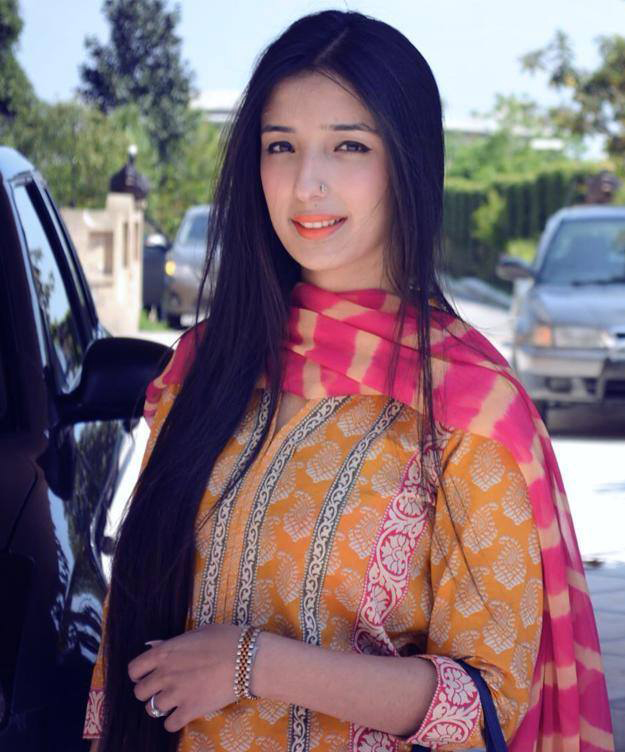 As a woman, I take a lot of pride that I am among the very few lucky women who get to play football: Asmara Kiani
As a woman, I take a lot of pride that I am among the very few lucky women who get to play football: Asmara Kiani“Everyone thinks if you play sports, you must be a tomboy. People often remark: she’s so girly, how can she play football, but I have to constantly tell them that I can. I think girls can be sporty and girly,” she says.
Kiani, who currently works as a Sports Development Officer at Total Football, began playing football professionally back in 2007, with the Young Rising Stars. Through her work at Total Football and her game on the field, she is trying to dispel the negativity associated with women in sports in Pakistan. Her father has backed her up throughout.
“As a woman, I take a lot of pride that I am among the very few lucky women who get to play football and get so much opportunity,” she remarks.
She also feels that women's sports require more media attention that will gradually open the way for sponsorships. She has been featured in a few promotional videos and feels that this is an avenue for female athletes to get projection.
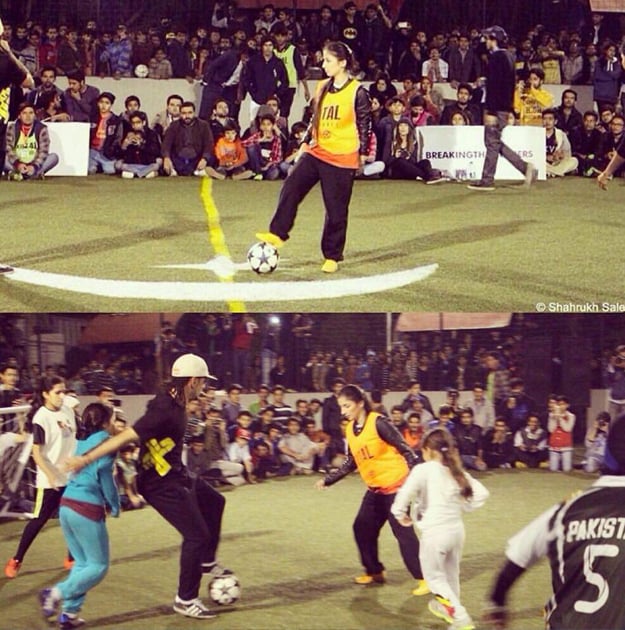 Asmara Kiani, 24, who has been a member of the Pakistan national women’s football team since 2010.
Asmara Kiani, 24, who has been a member of the Pakistan national women’s football team since 2010.The traditional measurements of financial success in sports lie in ticket sales and TV ratings, both of which remain staggeringly low for female sports, even in the developed world. According to a study conducted by Michael Messner and Cheryl Cooky in 2010, US television gives only 1.6% of its total sports airtime to women’s sports. Meanwhile, it continues to highlight their sexuality and appeal taking away attention from their skill.
Therefore, media attention and product endorsements become a slippery slope. American race car driver, Danica Patrick, has been appreciated as well as criticised globally; she has been applauded for acquiring sponsorship and paving the way for future female race car drivers and critiqued for highlighting her feminine sexuality as opposed to her skill.
However, female athletes in Pakistan feel that due to the cultural and religious context of the country, product endorsements and media campaigns can be a win-win.
Khan says the federations are currently spending out of their pockets for tickets and other tour-related expenses and sponsorships can bring in the money and help them, because most sports, besides cricket, do not get much attention in the country.
“One of the advantages of playing and being in Pakistan is that we can actually get sponsorships without emphasising our sexuality, even in terms of advertising,” she says.
Sana Mahmud, who has captained both the national women’s football and basketball teams, feels that endorsements are essential for two reasons. Firstly, for people to just know that females play a variety of sports and secondly for the athlete’s individual image as well.
 For product endorsements and ads, most brands will pick a girl who is ‘hot enough’. I know some really well-known athletes have been told that they're too ‘muscular’: Sana Mahmud
For product endorsements and ads, most brands will pick a girl who is ‘hot enough’. I know some really well-known athletes have been told that they're too ‘muscular’: Sana MahmudShe says she was approached for an advertisement for a mainstream clothing line and signed the contract but ultimately the campaign got dropped. However, she feels that athletes must exercise agency in the process.
“These endorsements are important but you need to put a line on what your limit is. Like once for a tournament that I was part of, the sponsors wanted the girls to come in heels on the ground for the promotion. I told them that I will refuse to be a part of it if that’s how they want to market it, and so we reached somewhat of a middle ground,” she explains.
But even athletes are held up to the same conventional, narrow standards of beauty.
“For endorsements, most brands will pick a girl who is ‘hot enough’. I know some really well-known athletes have been told that they're too ‘muscular’. We have a lot of athletes, but they aren't picked up for endorsements because these brands want someone who looks good to the male gaze. And not just the male gaze because unfortunately many women also have the same narrow perceptions about beauty,” Mahmud says.
Social media is now an alternative platform through which these athletes can reach out to followers and promote themselves. But some like Maqsood are not too comfortable using it. Besides, the fact that it requires a lot of time, she says that she has to tread carefully about her pictures and information in public, owed to the conservative moors of her area and family.
Khan, however, is a sceptic of the mindset of the public at large. When the women’s rugby team videos were put up by Al-Jazeera on Facebook, the comments they received were horrifying. According to her one of the comments read: ‘Why are they wearing shorts, they should be raped!’
Her husband also read those comments, and although he has been supportive of her throughout, she felt that the incident perturbed him.
“Things like these do make you think for a minute and you ask yourself, 'should I be participating in sports that require me to wear shorts',” she says.
Mahmud feels that the media also needs to change its narrative towards covering stories of female athletes and women’s sports. The critique needs to be more ‘constructive’ if they want to play their role as a watchdog of public interest.
“I am sick of this line ‘we don't have facilities’. Yes, we do! Private schools in Islamabad have world class facilities, the question is why aren't they being utilised? When I started playing with the Young Rising Stars in 2007, the club made an arrangement with Beaconhouse Margalla Campus and that’s where our practices were held. When that arrangement ended, then we used to train at OPF Boys College. So the problem is that people in charge lack coordination,” she explains.
She feels that sports such as handball, netball and even racket sports that have traditionally been considered ‘appropriate’ for women also need to be given attention and not just those such as rugby, kabaddi and basketball that have traditionally been male-dominated.
Shanel Khaliq is a freelance journalist and a teacher who is interested in issues related to gender, race and social justice. She tweets @Shanel9999

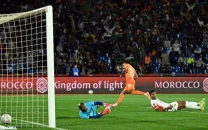

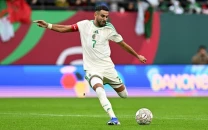


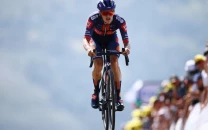



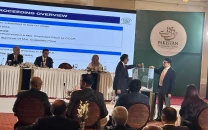

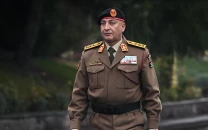


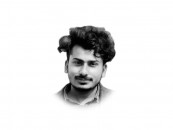



COMMENTS
Comments are moderated and generally will be posted if they are on-topic and not abusive.
For more information, please see our Comments FAQ